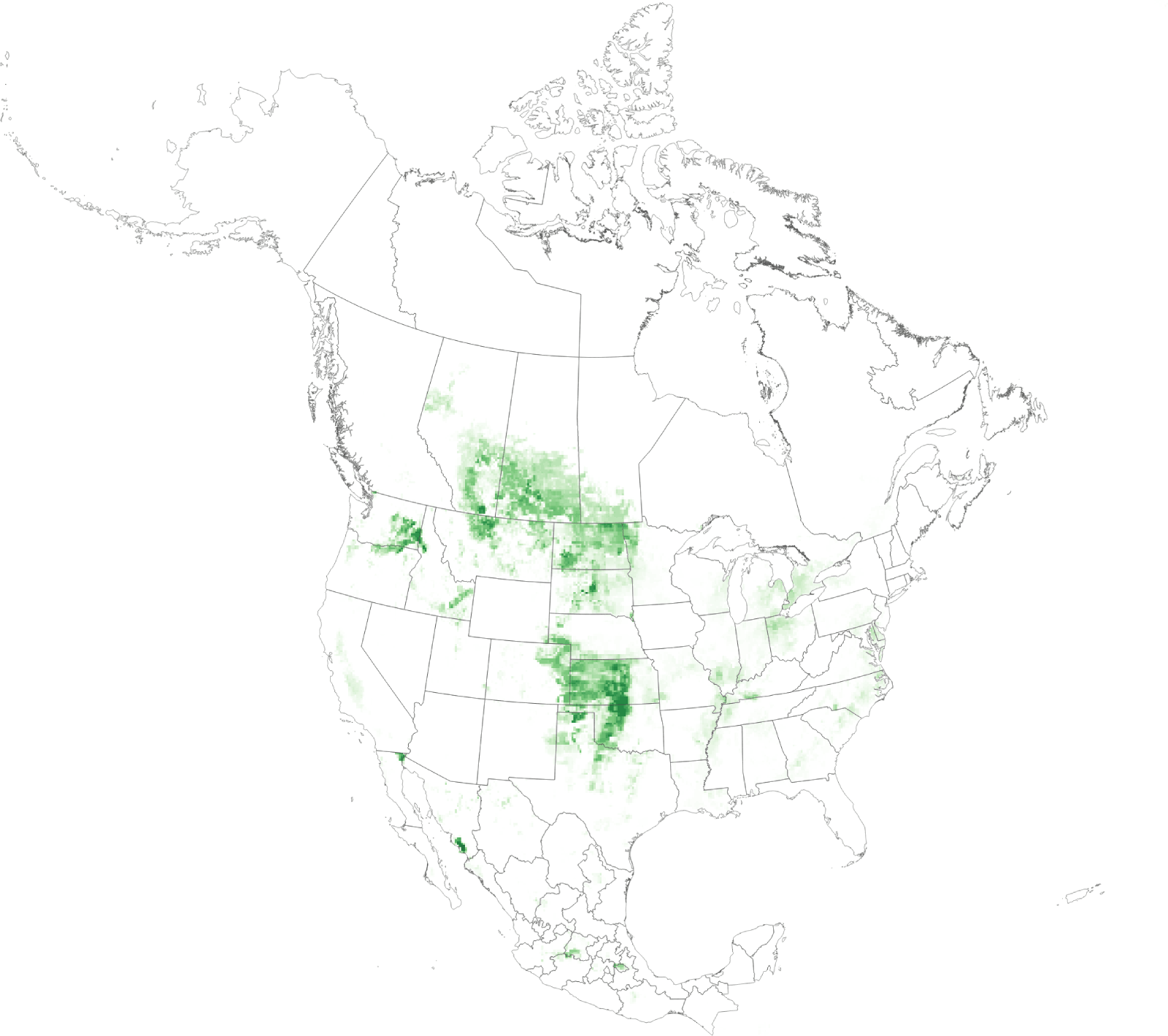Wheat Varietal Change in the US and Canada

The United States and Canada are both major wheat producers, with total harvested areas in 2021 respectively ranked 4th and 7th globally (FAOSTAT, 2023). Advancements in crop breeding and agricultural practices have led to steady productivity gains in the production of high-quality wheat varieties in both countries, positioning North America as a leading force in the world’s wheat market. Facing the challenges of climate change, increasing land and water scarcity, and emerging pest and disease threats, the resilience and productivity of wheat crops are of paramount importance in ensuring a stable and secure food supply for the continent and the world.
Using a century of data on commercial wheat crops in the United States, a recent paper published by researchers from the University's GEMS Informatics Center finds that the solution to sustainable wheat productivity growth lies in modern, scientifically-bred crop varieties. The study authors found that the increasingly intensive use of scientifically-selected crop varieties resulted in more biodiverse wheat production throughout the U.S., accompanied by a fourfold increase in average wheat yields over the past century.
Our Partnership with the University of Saskatchewan
To undertake a complementary, in-depth study of wheat varietal diversity and genetic improvements throughout Canada, the GEMS Informatics Center is partnering with Dr. Richard Gray’s team from the University of Saskatchewan to undertake joint research in support of the “4DWheat: Diversity, Discovery, Design and Delivery” project. The specific focus of this new study is to estimate the economic gains attributable to wheat varietal improvement in Canada and to identify the respective roles of landraces (farmer-bred varieties) along with Canadian and rest-of-world breeders in realizing these gains. In so doing, the study will quantify and characterize the shifting structure of varietal spill-ins to Canadian agriculture over the past half a century.
The first research objective of the GEMS-U Sask partnership is to evaluate the overall Genetic Gain (so-called G-gains) attributable to varietal improvement in Canadian wheat during the period 1970-2019. The study compiled comprehensive data on the areas planted to improved varieties coupled with detailed experimental data on the comparative yield performance of these varieties to assess the yield gains stemming from improved varieties relative to a chained counterfactual baseline of check varieties. To delve deeper into the different dimensions of the gains resulting from varietal improvement, we are dissecting the geography of genetic gains among the three major wheat-producing provinces (Alberta, Manitoba and Saskatchewan) and two specific classes of wheat (spring and durum).
Second, using a purpose-built data set developed by this project, we are also investigating the changing varietal diversity of Canadian wheat over the period 1970 to 2019, and partitioning the sources of yield/value gains into their various genetic parts using both phylogenetically-blind and phylogenetically-informed approaches. Our phylogenetically-informed approach utilizes the GEMS PedTools to map the lineage and evaluate the genetic relatedness among varieties when partitioning these gains. This analysis is designed to evaluate the economic value of the Canadian wheat crop that arises from various genetic sources, be that landraces, Canadian breeding programs, US breeding programs, and other international (e.g., CIMMYT/Mexico) research efforts. An additional feature of our approach is to identify the contributions coming from "dominant" varieties based on their prevalence and pedigree connections. Taken together, our findings will contribute to a better understanding of the dynamics and implications of varietal improvement in Canadian wheat crops.
Data-driven insights on the biodiversity and sustainability of wheat crops in Canada
Beginning in early 2020 our joint efforts have successfully compiled a novel Canadian wheat variety database that includes breeding passport information (both pedigree and phenotyping data) for over 310 commercial wheat varieties grown by Canadian farmers since 1970. Our initial results reveal that genetic improvements through breeding new wheat varieties are a dominant source of the overall yield gains achieved by commercial wheat farmers across the major wheat producing provinces in Canada. Furthermore, our new phylogenetically-informed partitioning procedures will help better align the costs and benefits associated with local R&D vis a vis research conducted elsewhere in the world. This work is also laying the quantitative foundations for practical, data-informed approaches to sharing the benefits arising from crop varietal change, a still often contentious aspect of the international agreements (e.g., the Nagoya Protocol embodied in the Convention on Biological Diversity) that shapes the access to and use of farmer versus scientifically bred crop varieties.
The key to sustainable agricultural productivity growth lies in embracing modern, scientifically-bred crop varieties that have demonstrated their ability to enhance biodiverse cropping practices and boost crop yields. Leveraging their respective expertise and data resources, the on-going partnership between the GEMS Informatics Center and the University of Saskatchewan is addressing the increasing challenges faced by cropping agriculture by providing data-driven insights on the biodiversity and sustainable productivity consequences of investments in modern crop breeding endeavors.
Reference:
FAOSTAT. Accessed on July 31, 2023 at https://www.fao.org/faostat/en/#data
